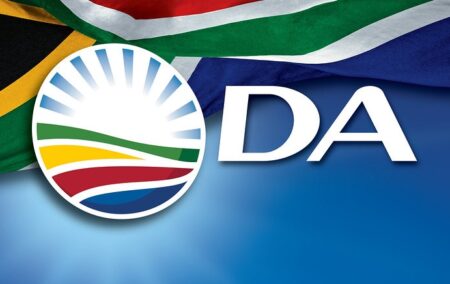The acceptance speech by John Steenhuisen on his recent election as leader of the Democratic Alliance (DA) hit all the right notes. He accurately diagnosed South Africa’s overriding problem, issued necessary warnings, set out an excellent criterion for evaluating remedies, and put forward those remedies within an unashamed liberal framework.
‘Bureaucrats and central planners’ had robbed people of their destiny, he declared in the speech as published on Politicsweb. The state was ‘utterly incapable and corrupt, yet absolutely hellbent on telling you what to do’. People were poor because ‘government crushes entrepreneurship, growth, and job creation’. Everyone could feel the decline ‘created by decades of ever-expanding state control’. The government’s solution to the problems caused by excessive state control was more state control. ‘The more the central planners fail, the more furiously the central planners plan.’
This is exactly right, not least because it recognises the menace of central planning. It is also refreshingly different from identifying inequality as the country’s major problem and blaming that on apartheid, thus neatly letting the present government off the hook and providing a pretext for state intervention.
Warnings
Then came the warnings about attacks by the African National Congress (ANC) on private property, private medical insurance, and forcing pension funds to invest in government projects. ‘No longer content with controlling you, the government now wants to own you. They are coming for your home, your health, and your savings’. Again, spot on.
Mr Steenhuisen’s remedies? ‘Take power back from the corrupt and incapable state that stole it away.’ ‘Replace state control with people power’. People wanted to stand on their own two feet as autonomous human beings with the power and freedom to make their own choices. The criterion for evaluating every decision would now be: ‘does it give more power to politicians and bureaucrats or does it give more power to the people?’
This is the language of freedom and individual rights. It is also the language of limited government. As Mr Steenhuisen put it: ‘We are a liberal party committed to non-racialism, a market economy, and a capable state that empowers citizens and cares for the vulnerable.’ Further: ‘Liberalism in its purest form is a commitment to give power to the people so they can decide for themselves how to build lives of value.’
Vital point
He also declared: ‘The days of ‘indecision and mixed-messaging are well and truly over’. This is a vital point. Only about six weeks ago, reporting on his party’s recent virtual policy conference, Mr Steenhuisen spoke of ‘compensating past discrimination’ and tackling ‘racialised inequality’. The DA would do this in a way that avoided the ‘serious shortcomings of the ANC’s race-based redress policies’, so helping to put ‘clear blue water’ between the two parties.
No go. The moment he spoke of ‘racialised inequality’ he muddied those waters.
There was no such ‘mixed-messaging’ in his acceptance speech as published, with the result that it was as important for what it did not say as for what it did say. In a lengthy interview with the Financial Mail before he finally secured the party leadership, Mr Steenhuisen foreshadowed what he later said in the speech.
On the basis of what Mr Steenhuisen said in that speech, the ideological differences between the ANC and the DA can be delineated much more clearly than has been the case for some time. The ANC blames poverty on apartheid, the DA says it is the fault of a government which ‘crushes entrepreneurship, growth, and job creation’.
Pretext
The ANC uses apartheid for two purposes: one is to blame its own failures on the previous government, the other is to create a pretext for appropriating more and more power. Mr Steenhuisen has told the country that its problem is not the legacy of apartheid but the ANC’s ideological quest for more and more power and that the remedy is to remove that power.
This is a powerful message, hitting the ANC where it is most vulnerable. Selling it in such a way as to turn it into votes will require leadership which is not only visionary and courageous but also single-minded and clear-sighted enough to guard against the risk of backsliding. Mr Steenhuisen’s overwhelming majority in the leadership election puts him in a powerful position to market that powerful message (even though the commentariat will attack him every inch of the way).
There are no doubt plenty in the party who will continue to claim that its main role is redress, compensation for past wrongs, tackling racialised inequality, and the like, even if they also say this will be done on a non-racial basis or, in Mr Steenhuisen’s own phrase, via ‘means-tested empowerment’. The problem is that ‘redress’ can too easily open the back door to empowering the state.
And that will muddy the waters all over again.
If you like what you have just read, support the Daily Friend

